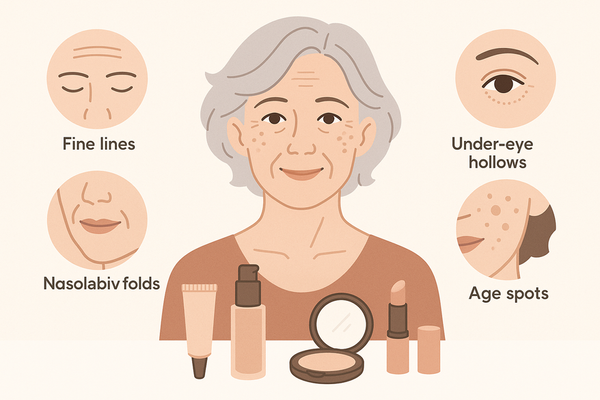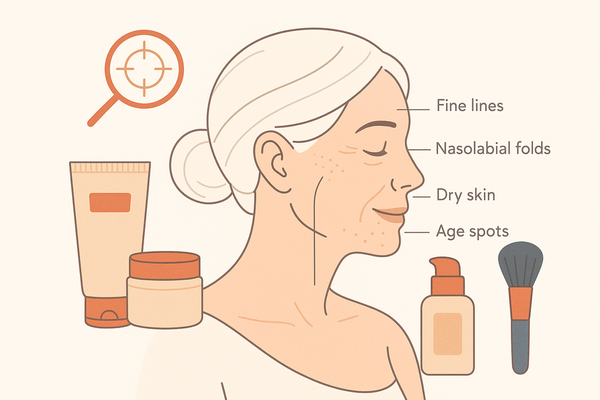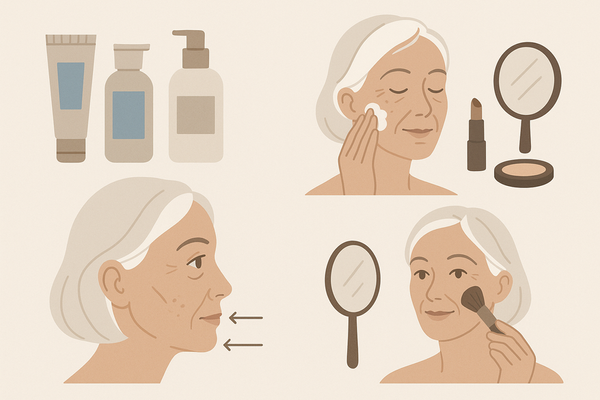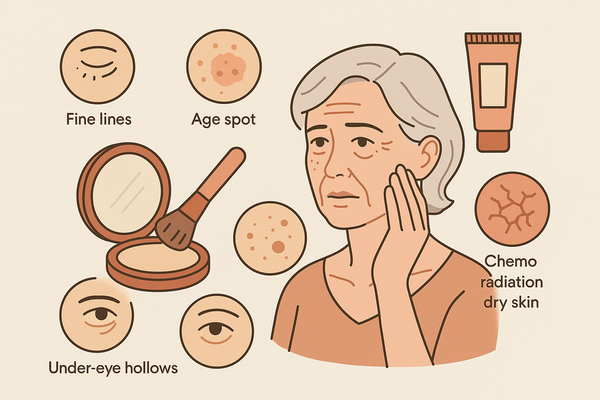Harnessing AI Makeup Trend Forecasting: Revolutionizing Beauty Industry Predictions
Discover how AI makeup trend forecasting transforms beauty predictions with AI-driven insights, offering speed and precision. Learn about future trends and examples.
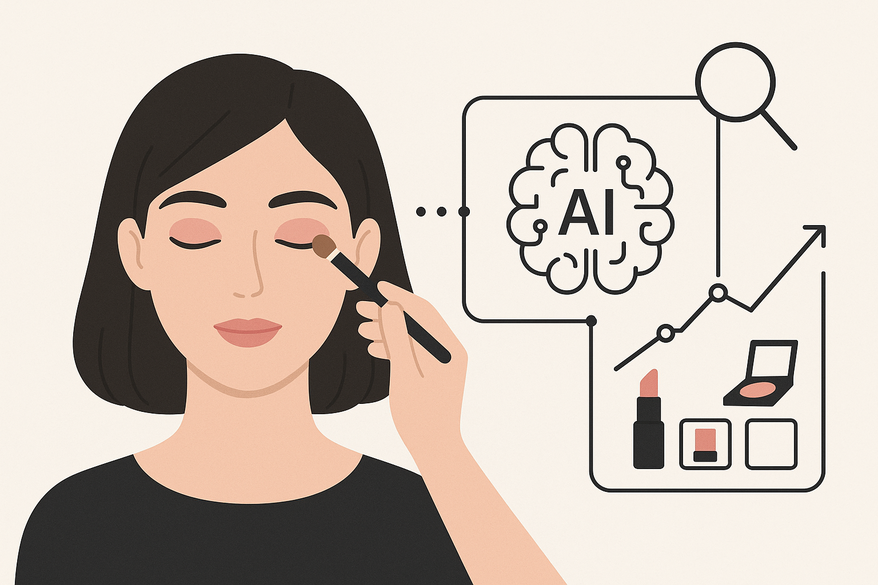
Estimated reading time: 5 minutes
Key Takeaways
- AI-driven algorithms process vast datasets to identify emerging makeup trends with speed and precision.
- Real-time insights, personalized recommendations, and generative design concepts transform product development.
- Technologies like machine learning, NLP, and computer vision converge for accurate forecasting.
- Future innovations include AR/VR dashboards, generative prototyping, and hyper-personalization.
- Ethical considerations—data bias, privacy, transparency—must be addressed for responsible AI use.
Table of Contents
- Understanding AI Makeup Trend Forecasting
- The Role of AI in the Makeup Industry
- Techniques and Technologies Involved
- Impact on Consumer Behavior and Industry Decisions
- Future Predictions and Challenges
- Conclusion
Understanding AI Makeup Trend Forecasting
AI Makeup Trend Forecasting involves algorithms that process vast datasets—from social media posts and product launches to patents and runway images—to identify emerging makeup trends. This method relies on advanced machine learning, natural language processing, and computer vision to spot patterns invisible to the human eye.
Step-by-Step Process
1. Data collection
• Global social media posts, product reviews, runway images, search volume data
2. Data cleaning & normalization
• Removing duplicates, standardizing formats, handling missing values
3. Trend analysis via machine learning & NLP
• Pattern detection, sentiment scoring, topic clustering
4. Predictive modeling
• Forecasting demand for product types, colors, styles
5. Human expert validation
• Experts review AI outputs, adjust based on market knowledge
Research shows AI transforms beauty trend analysis by rapidly processing millions of data points, including product launches, social media mentions, patents, and global conversations (trend-forecasting-beauty-ai, artificial intelligence in the world of beauty).
Platforms like Makeup Check AI demonstrate real-time trend analysis powered by big data to forecast the next viral looks in seconds.
The Role of AI in the Makeup Industry
AI is revolutionizing product development and marketing in the makeup industry by delivering hyper-personalized formulations and speeding up R&D cycles. Brands now predict ingredient trends and style popularity before they peak, shifting from months-long processes to near-instant execution.
Key Benefits
- Real-time insights for agile decisions
- Personalized recommendations boosting customer satisfaction
- Generative AI driving innovative design concepts
Examples & Case Studies
– AI-driven beauty apps and smart mirrors offer trend-based makeup guides in real time, helping consumers experiment with new looks.
– Brands use AI to spot microbiome-friendly skincare and novel bioengineered pigments ahead of launch, capturing niche markets before competitors.
Techniques and Technologies Involved
Multiple AI technologies converge to enable accurate makeup trend forecasting:
- Machine Learning – Learns from historical and real-time data to forecast future makeup trends. (trend-forecasting-beauty-ai)
- Big Data Analytics – Processes fragmented online data—social media posts, product reviews, images—to detect subtle signals. (artificial intelligence in the world of beauty)
- Neural Networks – Enables deep image and text analysis for pattern recognition beyond text descriptions. (the science fiction of trend forecasting with AI)
- Natural Language Processing (NLP) – Extracts sentiment and emerging topics from consumer chatter to reveal micro-trends. (the science fiction of trend forecasting with AI)
- Computer Vision – Automatically identifies trending colors, shapes, and styles from large image datasets. (trend forecasting fashion AI)
Compared to traditional forecasting—reliant on runway shows, magazines, and manual surveys—AI offers instantaneous pattern detection and validation, shortening trend cycles from months to minutes. (is AI the future of fashion trend forecasting)
Impact on Consumer Behavior and Industry Decisions
AI-driven tools now recommend on-trend products to consumers, driving experimentation and satisfaction. Smart algorithms match user profiles with emerging styles, boosting confidence and purchase frequency. (artificial intelligence in the world of beauty)
For a deep dive into regional insights and global patterns, see global makeup trend analysis AI.
Brand Decisions
- Reduced launch risk through data-backed insights (trend-forecasting-beauty-ai)
- Optimized marketing spend on predicted high-demand SKUs (trend-forecasting-beauty-ai)
Future Predictions and Challenges
Future Predictions
– Generative AI for rapid concept prototyping, reducing design lead times (trend-forecasting-beauty-ai)
– Real-time visualization dashboards using AR/VR for immersive trend exploration
– Hyper-personalization via biometric and lifestyle data analytics (artificial intelligence in the world of beauty)
For expert commentary on emerging forecast methods, see beauty trend insights AI.
Challenges
– Data accuracy & bias risk: Incomplete or skewed data can mislead trends—transparent model audits are essential (the science fiction of trend forecasting with AI).
– Ethical concerns: Privacy, informed consent, and avoidance of manipulative strategies remain critical (the science fiction of trend forecasting with AI).
Solutions
Adopting ethical AI frameworks and industry best practices ensures responsible data use and maintains trust among consumers and stakeholders.
Conclusion
AI makeup trend forecasting is revolutionizing beauty predictions with unmatched speed, precision, and innovation. By integrating AI-driven insights into product development, marketing, and consumer tools, the makeup industry gains a core driver of competitive advantage. As we address data accuracy and ethical challenges responsibly, the future promises smarter, fairer, and more engaging beauty experiences powered by AI makeup trend forecasting.
FAQ
- What is AI makeup trend forecasting?
It uses algorithms like machine learning and computer vision to analyze large datasets—social media posts, runway images, product launches—and predict upcoming makeup preferences. - How do brands benefit from AI-driven predictions?
Brands gain real-time insights, reduce product launch risks, optimize marketing spend, and deliver personalized recommendations to consumers. - Are there ethical concerns with AI trend forecasting?
Yes. Data accuracy, bias, consumer privacy, and responsible use of insights require transparent models and ethical frameworks. - What technologies power trend forecasting?
Key technologies include machine learning, big data analytics, neural networks, natural language processing, and computer vision. - What does the future hold for AI in beauty?
Expect generative AI for rapid concept prototyping, AR/VR trend visualization, and hyper-personalization through biometric and lifestyle data.

